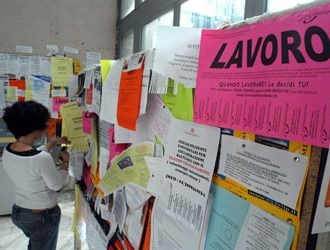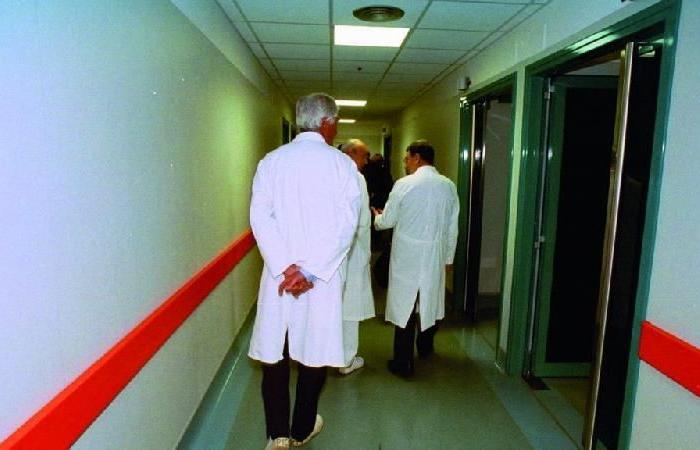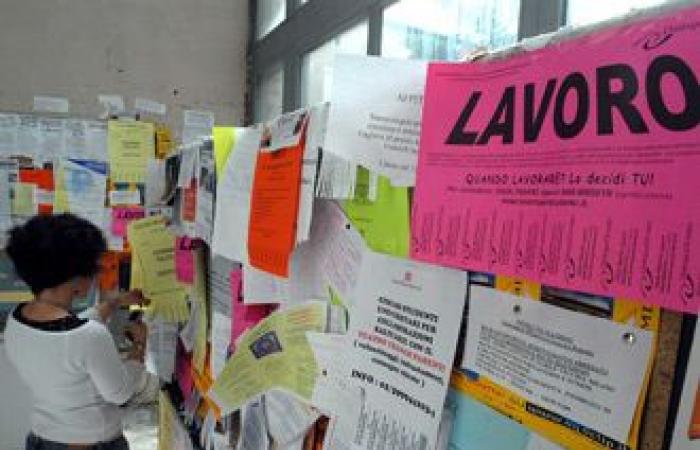Lucio Valentini 5.14pm Thursday 20 June 2024
Staff now close to retirement in the Municipality of Turin and in the regional administration. In the next few months, 30% of family doctors and pediatricians will need to be replaced. In 2042 there will be 15% fewer workers. The Bank of Italy report on the Piedmontese economy
The Piedmontese economy slows down in 2023 but does not stop (GDP +0.9%), with profitable companies increasing by 7 points compared to 2022. But it sees a gathering shadow, that of demographic decline. A problem that affects all of Italy but which sees the Piedmont do worse than the national average, and decidedly worse than the North of which it would be part, at least geographically. The scholars of Bank of Italy, in presenting the report on the Economy of Piedmont, dedicated a specific focus to the demographic component which risks slowing down future growth even if only because companies will struggle to find employees. Since 2013 the regional population has decreased by 174,000 units and, according to calculations based on Istat data, by 2042 it will decrease by 5%, for a total of 234,000 fewer people, but the working age population will decrease by as much as 14.9%. which means 285,000 fewer workers in the Piedmont of the future.
A bugbear of which the world of work is already showing symptoms. Bank of Italy analysts have produced an analysis on the number of over 50s compared to those under 34. This figure is high in all sectors, but in the public sector it jumps over 250%, he explained. Cristina Fabrizi that together with Andrea Orame presented the report. “There are strong critical issues within Piedmontese local authorities”, explained Fabrizi, “The Municipality of Turin and the Piedmont Region have a share of over 60s that is three times higher than those under 40”. Aging also affects other sectors of the Public Administration such as healthcare, which will face a difficult generational change. The figure fluctuates between OSS, nurses and other profiles but becomes worse “for family doctors and paediatricians: The staffing requirement for retirements alone ranges from 20% to 30%” of the workforce in the coming years. Needs that increase even more if we include the new local healthcare structures envisaged by the Pnrr.
 If the prospects are gloomy, the situation is not so terrible. In a national condition of general economic slowdown, Piedmont grew as much as the national average (+0.9%), while in 2022 it had recorded a +2.7%. Over the past year, inflation has deflated, going from 11.3% recorded in December 2022 to 0.8% in December 2023. An inflation that sees energy and transport as its main components while the contribution of the food sector drops markedly. The subalpine industry has a slightly decreasing real turnover. For construction, the slowdown due to the stop to the Superbonus began at the end of 2023, but is being compensated by the start of construction sites for the Pnrr. Business development is driven by digital and green transition, which occupy the investments of 60% and 70% of enterprises respectively. Profitable companies increased by 7%, company liquidity remains stable but the cost of debt has increased (APR from 4.3% to 6.4%), again due to the restrictive monetary policy. Investments show a sign of weakness, due to the higher cost of financing and the general economic slowdown.
If the prospects are gloomy, the situation is not so terrible. In a national condition of general economic slowdown, Piedmont grew as much as the national average (+0.9%), while in 2022 it had recorded a +2.7%. Over the past year, inflation has deflated, going from 11.3% recorded in December 2022 to 0.8% in December 2023. An inflation that sees energy and transport as its main components while the contribution of the food sector drops markedly. The subalpine industry has a slightly decreasing real turnover. For construction, the slowdown due to the stop to the Superbonus began at the end of 2023, but is being compensated by the start of construction sites for the Pnrr. Business development is driven by digital and green transition, which occupy the investments of 60% and 70% of enterprises respectively. Profitable companies increased by 7%, company liquidity remains stable but the cost of debt has increased (APR from 4.3% to 6.4%), again due to the restrictive monetary policy. Investments show a sign of weakness, due to the higher cost of financing and the general economic slowdown.
 As regards credit, analysts at the Bank of Italy note the low financial exposure of Piedmontese companies compared to other periods in which, in the last two decades, we were faced with a restrictive monetary policy such as that adopted at the moment by the ECB (the phases between 2004 and 2006 and between 2010 and 2012). The business system does not show a particular solvency problem, given that it is also found for families who, however, have a slightly lower purchasing power compared to pre-Covid (2019). The access of families to consumer credit also increases and also, slightly, consumption itself (+0.6%) but their net indebtedness decreases due to the lower taking out of mortgages, also due to the high interest rates currently in force. It should be remembered that real household income falls due to inflation. After the Covid period (2020 and 2021), Piedmontese families have recomposed their portfolio by decreasing current account deposits by 10.8% and increasing savings deposits (+9.2%) and investment in securities, at within which government bonds reign supreme.
As regards credit, analysts at the Bank of Italy note the low financial exposure of Piedmontese companies compared to other periods in which, in the last two decades, we were faced with a restrictive monetary policy such as that adopted at the moment by the ECB (the phases between 2004 and 2006 and between 2010 and 2012). The business system does not show a particular solvency problem, given that it is also found for families who, however, have a slightly lower purchasing power compared to pre-Covid (2019). The access of families to consumer credit also increases and also, slightly, consumption itself (+0.6%) but their net indebtedness decreases due to the lower taking out of mortgages, also due to the high interest rates currently in force. It should be remembered that real household income falls due to inflation. After the Covid period (2020 and 2021), Piedmontese families have recomposed their portfolio by decreasing current account deposits by 10.8% and increasing savings deposits (+9.2%) and investment in securities, at within which government bonds reign supreme.









